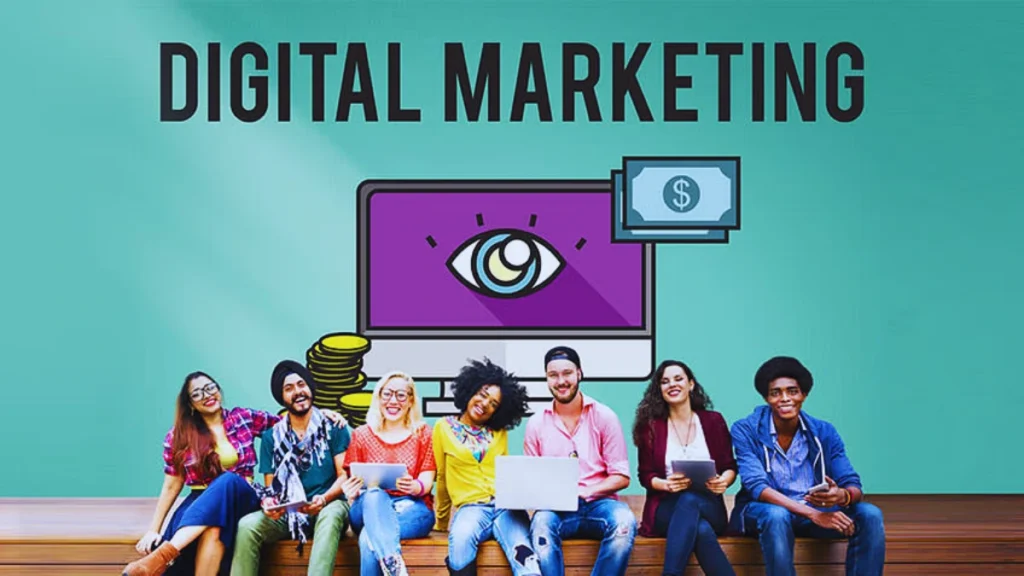In today’s rapidly evolving business world, digital marketing has become an essential skill for businesses of all sizes. With companies increasingly shifting to online platforms, the demand for skilled digital marketers has skyrocketed. As a result, many are considering enrolling in a digital marketing course to boost their career prospects.
In this article, we will dive into the factors that influence digital marketing course fees, the average costs, and tips on how to choose the right course that suits your budget and career goals.

Digital Marketing Course Fees with prices
| Course Level | Course Duration | Average Fee (INR) | Average Fee (USD) | Key Features |
|---|---|---|---|---|
| Beginner Course | 4–6 weeks | ₹5,000 to ₹15,000 | $70 to $200 | Basic understanding of digital marketing, SEO, and social media. |
| Intermediate Course | 6–8 weeks | ₹15,000 to ₹30,000 | $200 to $400 | In-depth knowledge, including content marketing and Google Ads. |
| Advanced Course | 2–3 months | ₹30,000 to ₹75,000 | $400 to $1,000 | Advanced strategies, analytics, and specialized digital marketing topics. |
| Specialized Course (SEO/PPC/SMO) | 1–3 months | ₹25,000 to ₹50,000 | $300 to $700 | Focus on specific areas like SEO, SEM, or Social Media Marketing. |
| Online Platforms (Udemy, Coursera) | Self-paced | ₹10,000 to ₹25,000 | $150 to $350 | Flexible, affordable courses with certifications. |
| University/Institution Course | 3–6 months | ₹50,000 to ₹1,00,000 | $600 to $1,200 | Recognized certification, expert instructors, comprehensive curriculum. |
| Free Digital Marketing Courses | Self-paced | ₹0 | $0 | Free introductory courses with limited certifications. |
Additional Costs:
- Study Materials: ₹2,000 to ₹5,000 (or $30 to $60) depending on the course provider.
- Certification Exam Fees: ₹1,000 to ₹5,000 (or $15 to $70) for certifications like Google Ads or HubSpot.
- Tools/Software: Some courses may include access to premium tools, while others may require a separate purchase (e.g., SEMrush, Moz).
This table provides a comprehensive comparison of digital marketing course fees at various levels, along with key features to help you make an informed decision about your educational investment.
Free digital marketing courses
1. Factors Influencing Digital Marketing Course Fees
Course Duration
One of the biggest factors that affect the cost of a digital marketing course is its duration. Generally, the longer the course, the higher the fees. Short-term courses or bootcamps, lasting a few weeks, are often more affordable. In contrast, long-term programs, which can span months, may cost more due to their comprehensive nature and the time invested.
Course Format
The format of the course also influences the fee structure. Online courses tend to be more affordable due to lower overhead costs, while in-person or hybrid courses often come with additional expenses related to venue, instructor fees, and materials. Online platforms like Udemy, Coursera, and LinkedIn Learning offer flexibility at a lower price, but if you prefer face-to-face interaction or need hands-on guidance, in-person courses may be a better fit—albeit at a higher cost.
Reputation of the Institution
Top-tier institutions or well-known universities typically charge higher fees for digital marketing courses. These institutions often offer advanced curricula, experienced instructors, and the prestige of recognized certification. However, local training centers or newer institutions may offer competitive prices while still providing valuable learning experiences.
Level of the Course
The level of the digital marketing course also plays a significant role in determining the fees. Basic courses aimed at beginners tend to be more affordable, while intermediate and advanced courses come with higher price tags due to their complexity and the expertise required. Specialized digital marketing certifications, such as those in SEO, PPC, or social media marketing, can also cost more, as they focus on specific areas within digital marketing.
Location
Location matters when it comes to course fees. In-person training courses in large cities or international hubs tend to have higher fees compared to smaller towns. This is due to the increased cost of living, venue rentals, and sometimes a more exclusive target audience.
Certifications and Accreditation
If a course offers internationally recognized certifications, such as Google Ads, HubSpot, or Facebook Blueprint, the fees may be higher. These certifications can boost your resume and demonstrate your expertise to potential employers, but they may come with additional costs for exams or special training.
2. Average Cost of Digital Marketing Courses
Digital marketing courses vary widely in terms of pricing, depending on the factors mentioned above. Here’s a breakdown of what you can expect:
- Beginner Courses: These are introductory courses that cover the basics of digital marketing, including SEO, content marketing, social media, and email marketing. The average cost for a beginner-level course can range from ₹5,000 to ₹15,000 (or $70 to $200).
- Intermediate Courses: These courses offer more in-depth training, covering a wider range of digital marketing strategies and tools. Fees for intermediate courses typically range from ₹15,000 to ₹30,000 (or $200 to $400).
- Advanced & Specialized Courses: Advanced courses or specialized certifications (e.g., SEO, PPC, or Google Analytics) may cost anywhere from ₹30,000 to ₹75,000 (or $400 to $1,000) depending on the institution and the complexity of the subject.
Online platforms like Coursera and Udemy generally offer digital marketing certifications at lower costs, often in the ₹10,000 to ₹20,000 (or $150 to $300) range.
3. How to Choose the Right Digital Marketing Course Based on Fees
Choosing the right digital marketing course is essential for making the most out of your investment. Here are a few tips to help you choose a course that suits your budget:
Budget Considerations
While cost is a significant factor, it’s also essential to ensure that the course offers value for money. Compare various courses within your price range and check their reviews, curriculum, and certification details to make sure they align with your career goals.
Free vs. paid courses
There are plenty of free digital marketing courses available online, especially on platforms like Google Digital Garage, Coursera, and LinkedIn Learning. While these are good starting points for beginners, paid courses usually provide more in-depth learning, mentorship, and recognized certifications.
Return on Investment (ROI)
Before committing to a course, consider the potential return on investment. Will the course help you land a better job, increase your salary, or open up more career opportunities? The higher the fees, the more significant the potential return should be.
4. Additional Costs to Consider
While the main course fees are the most significant expense, other costs may come into play. Be sure to check for any hidden fees or additional costs such as:
- Study Materials: Some courses provide textbooks or resources as part of the fee, while others may require you to purchase additional study materials.
- Exam Fees: For certifications like Google Ads or HubSpot, there might be additional exam fees.
- Tools and Software: Some courses include access to premium digital marketing tools, but others may require you to purchase software like SEMrush, Ahrefs, or Adobe Creative Suite separately.
5. Available Discounts and Scholarships
To make digital marketing courses more accessible, many institutions and online platforms offer discounts and scholarships.
- Early Enrollment Discounts: Many course providers offer discounts for early sign-ups, so it’s worth checking for promotional offers.
- Corporate or Group Discounts: Some companies offer group training for their employees and may receive discounted rates.
- Scholarship Opportunities: Certain institutions offer scholarships for talented students, particularly those in need or from underrepresented communities.
6. Benefits of Investing in a Digital Marketing Course
While digital marketing course fees can seem daunting, the long-term benefits make it worthwhile. Here’s why you should consider investing:
- Career Advancement: Digital marketing skills are in high demand, and completing a reputable course can help you stand out to employers.
- Increased Earning Potential: As digital marketing professionals, you can expect to earn higher salaries as you gain more expertise.
- Practical Skills: A well-designed digital marketing course will provide hands-on experience with real-world tools, techniques, and strategies.
FAQs
1. What is the average cost of a digital marketing course?
The cost of a digital marketing course can vary widely depending on factors such as the course’s duration, the institution offering it, and the depth of the curriculum. On average:
- Beginner courses: ₹5,000 to ₹15,000 ($70 to $200).
- Intermediate courses: ₹15,000 to ₹30,000 ($200 to $400).
- Advanced courses: ₹30,000 to ₹75,000 ($400 to $1,000).
- Specialized certifications (e.g., SEO, PPC): ₹25,000 to ₹50,000 ($300 to $700).
2. Are there any free digital marketing courses available?
Yes, several platforms offer free digital marketing courses. Some popular ones include:
- Google Digital Garage: Provides free beginner-level digital marketing courses.
- HubSpot Academy offers free certification courses on inbound marketing and digital marketing.
- LinkedIn Learning—Free trial available for digital marketing courses.
- Alison offers a Diploma in E-Business course free of charge. These free courses are a great starting point for beginners, though paid courses may offer more depth and advanced content.
3. Why do digital marketing course fees vary so much?
Digital marketing course fees can vary depending on several factors:
- Course Duration: Short-term courses tend to be cheaper than long-term ones.
- Course Format: In-person courses are typically more expensive due to additional costs like venue, instructor fees, and study materials. Online courses are generally more affordable.
- Institution Reputation: Well-known institutions or universities offering certifications will charge higher fees due to their prestige and expertise.
- Course Level: Beginner courses cost less, while advanced or specialized courses cost more due to the complexity and subject matter.
4. Is it worth paying a higher fee for a digital marketing course?
Paying a higher fee for a digital marketing course can be worth it if the course provides value in the form of:
- Expert instructors with industry experience.
- In-depth curriculum that covers both theory and practical applications.
- Certifications from reputable institutions that are recognized by employers.
- Access to premium tools and software for hands-on learning. Higher-priced courses often offer more comprehensive content and additional benefits, making them a good investment for those serious about pursuing a career in digital marketing.
5. Can I find discounts or scholarships for digital marketing courses?
Yes, many course providers offer discounts, scholarships, and financial aid.
- Early-bird discounts are often available for those who enroll before a certain date.
- Group discounts for corporate or group training sessions.
- Scholarships for deserving students, particularly those in need or from underrepresented groups.
- Some platforms like Coursera and Udemy also offer occasional sales with up to 90% off on courses, making digital marketing education more affordable.

